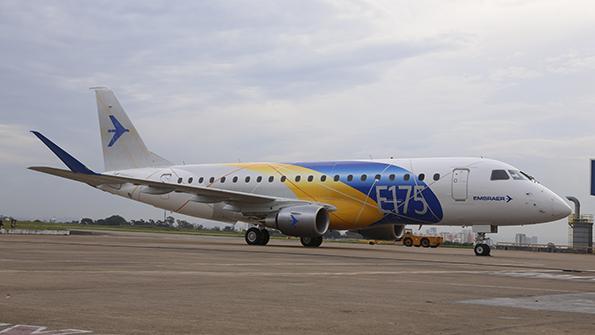
Ask the Editors: The Aviation Week Network invites our readers to submit questions to our editors and analysts. We’ll answer them, and if we can’t we’ll reach out to our wide network of experts for advice.
The Embraer 175 is a favorite with scope-clause-covered airlines but the E175-E2 is not currently compliant with scope clauses. How much of Embraer’s future relies on change in the scope clause?
Aviation Week Air Transport and Safety Editor Sean Broderick responds:
One thing is certain: The E175-E2’s future is 100% dependent on changes to U.S. scope clauses, a provision in pilot contracts that limits the size and number of aircraft that lower-paid pilots at regional affiliates can fly. If nothing changes, there won’t be much of a market for the aircraft because it is too heavy for operators in the U.S., the dominant market for regional jets.
The three largest U.S. airlines that rely on scope-clause-defined regional feed—American Airlines, Delta Air Lines and United Airlines—are in talks with their pilots on new deals. Before the coronavirus pandemic, the pilots insisted that scope clauses were not on the table, and the pilots had the leverage to keep it that way. But whether that holds is anyone’s guess, given that qualified airline pilots are now likely to outnumber job openings for at least a few years.
As for Embraer, President and CEO John Slattery said during a recent Aviation Week webinar that the original E175 will remain in production for as long as there are customers—and if scope clauses do not change, there will be customers. The aircraft has no competitors on current production lines, and with Mitsubishi pulling the plug on its M100, none are on the horizon. Even factoring in pandemic-related reductions, not every hub-dependent airline network can bottom out at 100-seat jets.
Will that, plus the E195-E2, be enough to sustain a stand-alone Embraer commercial aircraft business long-term? Probably not, but that’s a whole different issue.





